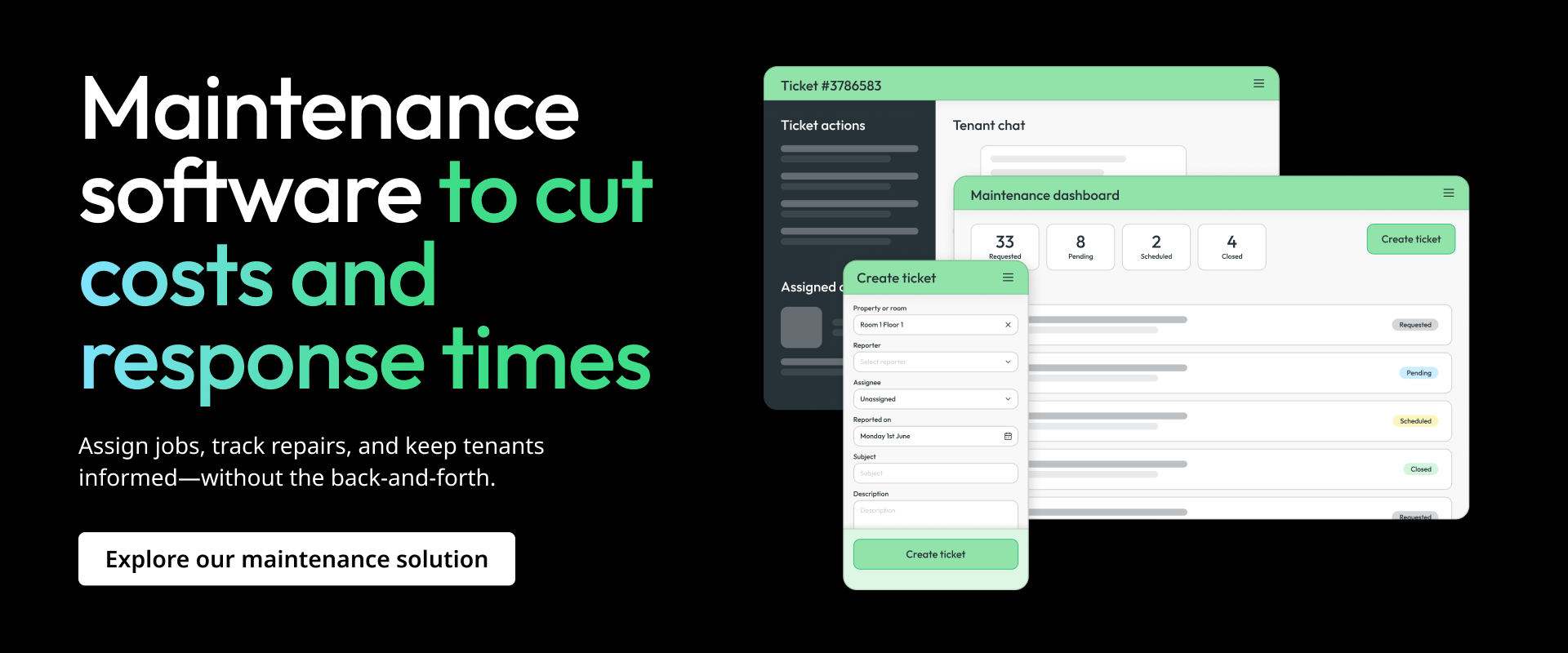
How to prepare for summer turnover

As the academic year draws to a close, property managers face one of the busiest and most demanding times in the student lettings calendar. With student tenants moving out en masse, you’ve got a narrow window to carry out inspections, address maintenance issues, and prepare properties for the next cohort.
To make this period as smooth and efficient as possible, now is the time to get organised. In this blog, we’ll walk through the key steps you can take to minimise disruption and prepare your portfolio for a seamless summer turnover.
Start with a post-tenancy checklist
A detailed, repeatable checklist is essential for tracking what needs to happen between tenancies. Your checklist should include:
- Inventory checks
- Property inspections
- Meter readings
- Deep cleans
- Routine repairs
- Safety compliance checks
Having a clear process means nothing gets missed, especially when you're managing a high volume of rooms in a short time frame.
Identify and take action on maintenance issues early
Ideally, you’ll want to handle any outstanding maintenance issues before tenants leave. Unresolved problems could worsen over time or result in deposit disputes.
- Encourage tenants to report issues ahead of move-out
- Log and prioritise requests based on urgency
- Line up contractors for key repair windows
This is also the perfect time to assess the long-term condition of your properties. Are there recurring issues in certain buildings? Could preventative work reduce your workload later?
Stay compliant with safety checks
Summer turnover is also a compliance touchpoint. Make sure you’re up to date with:
- Gas Safety Certificates (renewed annually)
- Electrical Installation Condition Reports (every five years)
- Smoke and carbon monoxide alarm testing
Proactively handling these checks during the transition period helps avoid last-minute scrambles - and ensures you’re letting safe, legally compliant properties to new tenants.
Plan for Furnishing, Decorating, and Refits
If your properties need bigger changes — like new furniture, redecoration, or light refurbishments - summer is your opportunity.
- Replace worn-out furniture to keep rooms marketable
- Refresh paintwork in high-traffic areas
- Upgrade appliances or fittings before peak move-in season
If you're working to a tight budget, focus on the updates most likely to improve tenant satisfaction and reduce maintenance calls during the year ahead.
Schedule smart, communicate clearly
Turnover season moves fast — and so should your communication. Whether it’s with tenants, landlords, or contractors, staying aligned is key.
- Send tenants reminders with checkout dates, cleaning responsibilities, and inspection timings
- Confirm contractor jobs in writing with dates and access arrangements
- Share schedules with your team to ensure smooth coordination
When everyone knows what’s happening - and when - the entire process becomes more manageable.
How Concurrent helps you streamline turnover
Managing summer turnover across multiple properties is hard work - but with the right tools, it’s a lot easier. That’s where Concurrent comes in.
Here’s how it helps:
- Maintenance dashboard: See all maintenance jobs in one place, filter by status, and assign them directly to contractors.
- Tenant self-service portal: Tenants can report maintenance issues via the app before check-out, giving you visibility ahead of time.
- Automated contractor assignment: Assign jobs automatically to approved contractors based on category and availability, saving time.
- Audit trails and job history: Keep a full record of all works, including costs and communication, for future reference and compliance.
- Integrated compliance tracking: Track safety checks (e.g. gas, electric, fire alarms) and get reminders before expiry dates.
Share


